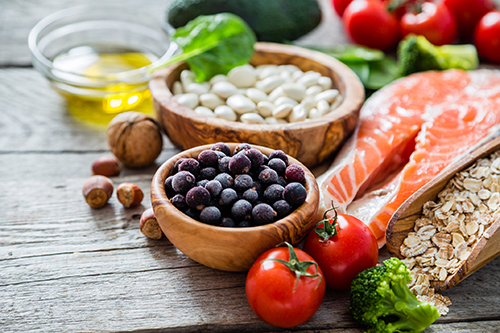
ERCP Malpractice Note
According to the American Society for Gastrointestinal Endoscopy (ASGE), certain preexisting health conditions can increase a patient’s risk for pancreatitis after an ERCP by as much as 25%. Pancreatitis can be a life-threatening condition. If you are battling life-threatening ERCP complications, call 888.726.6735
ERCP Diet
While your directions may differ depending on your doctor and health circumstances, the diet for before and after an ERCP will be generally similar. Patients should refrain from eating or drinking for several hours before the procedure, except for critical medications taken with a small dose of water. After an ERCP, your doctor may recommend clear liquids, an NPO diet, or a low fat diet to help reduce chances of upset stomach and complications.
Recommended ERCP Diet
There are no set medical guidelines for required ERCP diet before or after the procedure. Due to the invasive nature of an ERCP, doctors may recommend a specific diet before or after the procedure. This recommended diet is based on each patient’s individual case and risk factors for developing complications.
What to Eat Before Your Procedure
Many specialists recommend fasting or limited ERCP diet before a procedure. Patients may be advised to refrain from consuming solid food during the six-to-eight hours leading to the procedure. Some physicians and medical centers specifically advise against any substances that can increase saliva, including chewing tobacco, gum, mints, or hard candies. Clear liquids may also be restricted up to two hours before the procedure as part of the ERCP diet.
Medications before ERCP
Patients who take medications may be advised to take medications no sooner than four hours before the procedure. In some cases, certain medications or vitamins may be completely restricted before the procedure.
Since blood clotting and sedation are important aspects of ERCP, patients may be asked to refrain from taking medications that might interfere with these processes. Patients should consult their physician before altering their diet for their existing medication regimen. Failing to take prescribed medication or altering timing can cause serious complications.
Medications that may be restricted from an ERCP diet include:
- Blood thinners
- Diabetes medication
- Dietary supplements
- Antidepressants
- Blood pressure medication
- Nonsteroidal anti-inflammatory drugs (NSAIDs), including ibuprofen, aspirin and naproxen (Advil, Aleve, etc.)
What to Eat After Your Procedure
Most doctors will recommend some type of ERCP diet for their patients to follow after the procedure. This can help ease the digestive process for the patient during the first few days following a procedure. Exact diet instructions vary from patient to patient due to individual medical conditions.
Low-fat Diet

A low-fat ERCP diet may be recommended for up to a week after the procedure. A low-fat diet typically reduces the risk of digestive upset and complication involving the pancreas and other digestive organs that may be agitated after an ERCP. A low-fat ERCP diet is believed to reduce the risk of pancreatitis, as high fat content can further agitate the pancreas and contribute to pancreatitis after ERCP.
Clear Liquid Diet
Many physicians recommend a clear liquid diet after ERCP to avoid agitating the pancreas with food digestion. Since the pancreas plays a role in digestion, eating after an ERCP may contribute to complications such as pancreatitis. The recommendation time for a clear liquid diet varies. Some physicians recommend a clear liquid diet for 24 hours after the procedure. However, some physicians recommend it for 12 hours or less.
NPO Diet
Nil per os (NPO) is a medical instruction that advises patients to withhold from consuming foods and fluids. The patient’s recommended diet may include NPO for varied duration. The recommendation for NPO varies similarly to the recommendation for a clear liquid diet. This ERCP diet recommendation typically ranges from a few hours to 24 hours after the procedure.
Sources:
“Endoscopic Retrograde Cholangiopancreatography (ERCP).” Virginia Mason Team Medicine. Virginia Mason Medical Center. Web. 29 Jun 2013. <https://www.virginiamason.org/ERCP>.
“ERCP (Endoscopic Retrograde Cholangiopancreatography).” National Digestive Diseases Information Clearinghouse. National Institute of Diabetes and Digestive and Kidney Diseases, 29 Jun 2012. Web. 29 Jun 2013. <http://digestive.niddk.nih.gov/ddiseases/pubs/ercp/>.
“ERCP (Endoscopic Retrograde Cholangiopancreatography).” University of Michigan Health System. University of Michigan Health System, n.d. Web. 29 Jun 2013. <http://www.med.umich.edu/1libr/aha/umercp.htm>.
Ferreira, Lincoln, et al. “Dietary approaches following endoscopic retrograde cholangiopancreatography: A survey of selected endoscopists.” World Journal of Gastrointestinal Endoscopy. 2.12 (2010): 397-403. Web. 29 Jum. 2013. <http://www.ncbi.nlm.nih.gov/pmc/articles/PMC3010470/>.